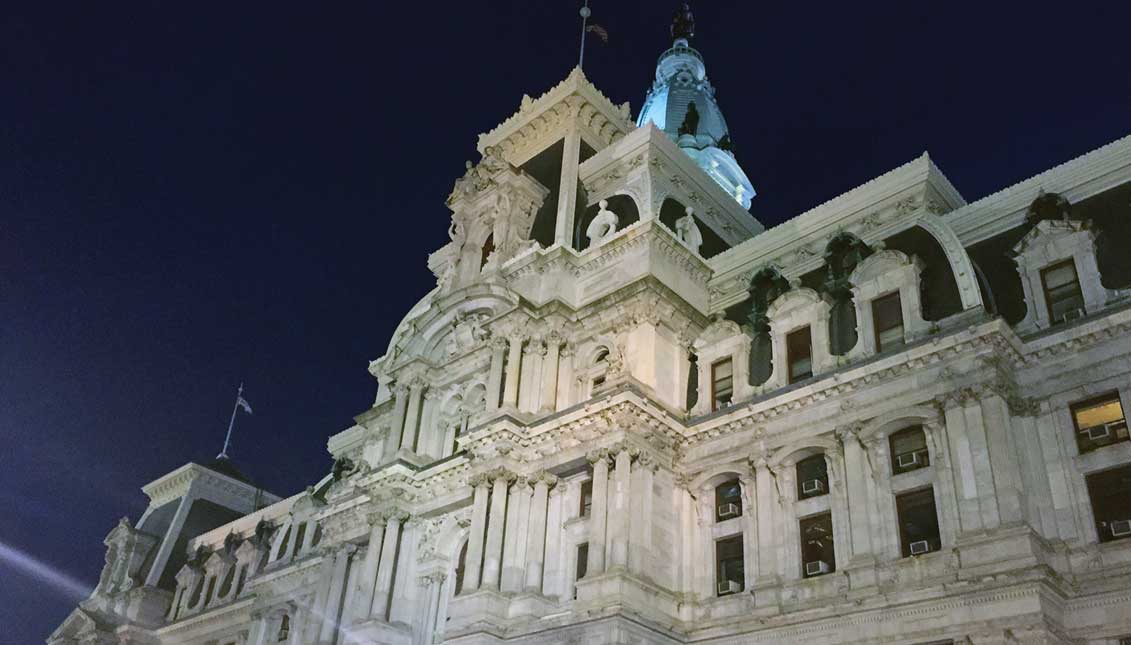
City Hall Ignores Revenue Source From Rich While Increasing Middle Class Taxes
MORE IN THIS SECTION
When it comes to raising money to fund Philadelphia’s public schools, some in City Hall automatically see raising property taxes as the solution.
Snatching more money from city homeowners to pay for schools has become a voluntary reflex in City Hall, particularly for the person holding the title of Mayor.
Current Philadelphia Mayor James Kenney recently proposed another real estate tax increase to raise revenue for city schools. Kenney needs more money now that he’s achieved his goal to end of state control over Philadelphia’s School District.
City Hall had raised real estate taxes for school funding four times during the two terms of Kenney’s immediate mayoral predecessor: Michael Nutter.
A medical definition for voluntary reflex is an action that persons initiate by their own conscious will power, like walking.
Since conscious decision is essential to voluntary reflex, City Hall should find the conscious will to fund schools without constantly picking homeowners’ pockets with higher real estate taxes. (Don’t forget that R.E, tax costs can/do increase through assessment rates that are separate from the actual R.E. tax rate.)
Yes, Philly’s public school system – the largest system in Pennsylvania and eighth largest system in America – remains chronically underfunded because the Pennsylvania state legislature remains willfully negligent in the fulfillment of its state constitutional duty to adequately fund public education across the Commonwealth.
And, yes, providing a proper education for children is a core civic commitment that all should support, citizens and corporations alike.
But at what point does the R.E. tax burden become burdensome?
No Más – no increase in real estate taxes.
There is a dedicated school-funding source in Philadelphia – the School Income Tax (SIT) – that few Philadelphians know about and even fewer Philadelphians pay, as they should.
SIT, according to City Hall’s website, must be paid by all Philadelphia residents who receive “certain types of unearned income.” Unearned income sources liable for SIT include dividends, income from trusts-&-estates, royalties, short-term rental income, punitive damage awards and cash lottery winnings from the Pennsylvania Lottery.
City Hall concedes too few Philadelphians know about SIT. Only 40,000 out of Philly’s 600,000-plus residents pay SIT. The pool of city residents definitely includes more responsible for SIT payments than are paying.
Where is City Hall’s voluntary reflex – conscious will – to increase citizen awareness about SIT and to initiate an amnesty program for delinquent SIT payments?
An amnesty program is a fair method to increase collection of SIT since so few know it exists. Remember, City Hall knows who owes SIT because that information is available to City Hall through the IRS.
Another area lacking in conscious will from City Hall, so far, is elimination or modification of the 10-year tax abatement on new construction or substantial renovation.
The abatement implemented nearly twenty years ago did what it was supposed to do: accelerate new construction thus reviving Philly’s morbid economy.
But now, that abatement is costing Philly tax revenue. Plus abatements are unfair to long-time homeowners particularly in communities gentrified in part by the abatement program.







LEAVE A COMMENT:
Join the discussion! Leave a comment.